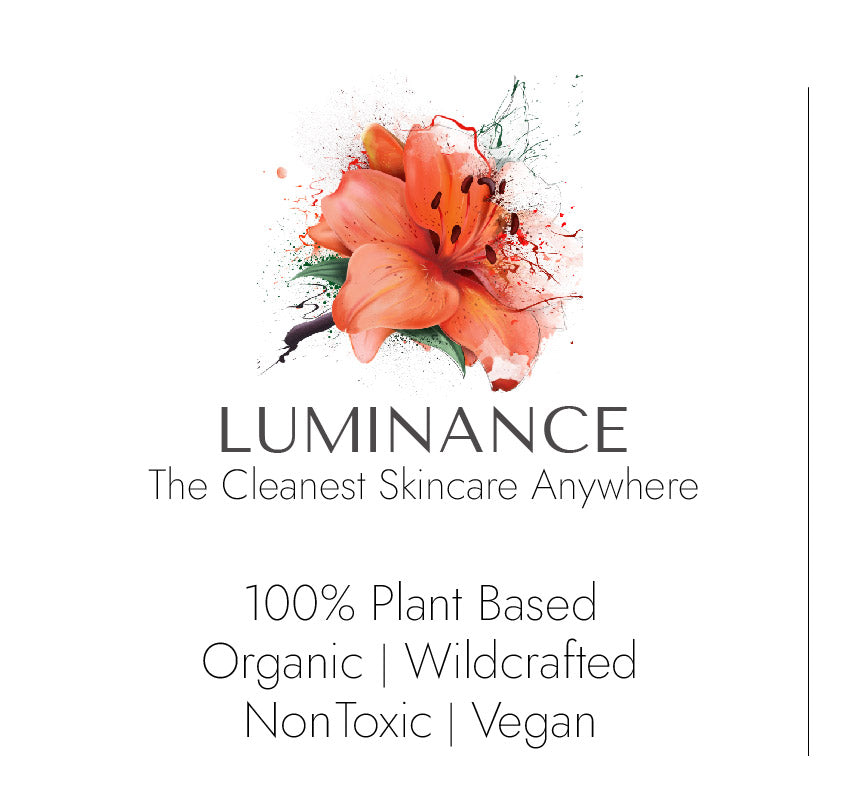Fatty Acids in Plant-Based Natural Oils and Their Specific Benefits for Human Skin

Plant-based natural oils have long been cherished for their remarkable benefits to human skincare in cultures spanning the planet. These oils are rich sources of various fatty acids, each with its own distinct properties that contribute to skin health and radiance. From nourishing and moisturizing to protecting and rejuvenating, these fatty acids play crucial roles in maintaining the skin's vitality. Let's delve into some of the key fatty acids found in these oils and their specific benefits for human skin:
1. Oleic Acid: Oleic acid is abundant in:
- Olive Oil: A staple in Mediterranean skincare, olive oil's oleic acid content provides excellent moisturization and protection for dry and mature skin.
- Almond Oil: With its light texture, almond oil's oleic acid helps soothe and hydrate sensitive skin, leaving it soft and supple.
- Avocado Oil: Known for its rich consistency, avocado oil's oleic acid deeply moisturizes and nourishes dry, dehydrated skin, promoting a rejuvenated appearance.
2. Linoleic Acid: Linoleic acid is prevalent in:
- Sunflower Oil: A light and versatile oil, sunflower oil's linoleic acid content helps balance oil production, making it suitable for both dry and oily skin types.
- Safflower Oil: Rich in linoleic acid, safflower oil supports skin barrier function, soothes inflammation, and maintains hydration levels.
3. Alpha-Linolenic Acid (ALA): Oils rich in alpha-linolenic acid include:
- Flaxseed Oil: A potent source of ALA, flaxseed oil's anti-inflammatory properties soothe irritated skin and contribute to a radiant complexion.
- Chia Seed Oil: High in ALA, chia seed oil's antioxidant benefits protect against environmental damage, supporting youthful skin appearance.
- Hemp Seed Oil: With a balanced ratio of omega-6 to omega-3 fatty acids, hemp seed oil's ALA content helps reduce inflammation and maintains skin health.
4. Palmitic Acid: Palmitic acid is found in:
- Coconut Oil: Coconut oil's palmitic acid contributes to its nourishing and protective properties, making it a popular choice for overall skin care.
- Palm Oil: Rich in palmitic acid, palm oil enhances the skin's barrier function and promotes moisturization for improved skin health.
- Shea Butter: Containing palmitic acid, shea butter's luxurious texture offers deep hydration and helps restore dry, rough skin.
5. Stearic Acid: Stearic acid is present in:
- Cocoa Butter: Known for its high stearic acid content, cocoa butter's emollient properties moisturize and soften the skin, improving texture and appearance.
- Shea Butter: Alongside palmitic acid, shea butter's stearic acid helps create a protective barrier, preventing moisture loss and promoting skin suppleness.
- Coconut Oil: In addition to palmitic acid, coconut oil's stearic acid supports moisturization and overall skin health.
6. Gamma-Linolenic Acid (GLA): GLA-rich oils include:
- Borage Oil: Borage oil's significant GLA content makes it valuable for skin conditions like eczema and inflammation, promoting skin healing and comfort.
- Evening Primrose Oil: Renowned for its GLA and linoleic acid content, evening primrose oil supports overall skin health and helps manage skin concerns.
- Black Currant Seed Oil: With notable GLA levels, black currant seed oil contributes to skin hydration, elasticity, and a smoother complexion.
7. Myristic Acid: Myristic acid is found in:
- Nutmeg Oil: Nutmeg oil's myristic acid content lends it antimicrobial properties, making it beneficial for cleansing and purifying the skin.
- Palm Oil: Alongside palmitic acid, palm oil's myristic acid contributes to maintaining the skin's protective barrier and promoting overall skin health.
- Coconut Oil: Coconut oil's myristic acid content supports its cleansing and moisturizing properties, making it versatile for various skincare uses.
8. Lauric Acid: Lauric acid is abundant in:
- Coconut Oil: Coconut oil's lauric acid provides antimicrobial and antibacterial benefits, making it effective against acne-causing bacteria and other skin infections.
- Palm Kernel Oil: Like coconut oil, palm kernel oil's lauric acid content offers similar antimicrobial properties for cleansing and supporting skin health.
9. Caprylic Acid: Caprylic acid is found in:
- Coconut Oil: Alongside lauric acid, coconut oil's caprylic acid contributes to its antimicrobial properties, making it suitable for addressing skin issues caused by bacteria and fungi.
- Palm Kernel Oil: Similar to coconut oil, palm kernel oil's caprylic acid provides antibacterial and antifungal benefits for maintaining clean and healthy skin.
10. Arachidonic Acid: Arachidonic acid is present in:
- Borage Oil: Borage oil's arachidonic acid content supports overall skin health, contributing to skin repair, hydration, and barrier function.
- Evening Primrose Oil: Alongside GLA, evening primrose oil's arachidonic acid supports its benefits for skin comfort, hydration, and rejuvenation.
11. Behenic Acid: Behenic acid is found in:
- Moringa Oil: Moringa oil's behenic acid content contributes to its moisturizing and skin-smoothing properties, promoting soft, nourished skin.
- Nut Oils: Some nut oils, such as peanut oil, contain behenic acid, which can provide moisturizing benefits and improve skin texture.
12. Ricinoleic Acid: Ricinoleic acid is abundant in:
- Castor Oil: Castor oil's ricinoleic acid has antimicrobial and anti-inflammatory properties, making it suitable for soothing and healing various skin concerns.
13. Eicosenoic Acid: Eicosenoic acid is present in:
- Jojoba Oil: Jojoba oil's eicosenoic acid content contributes to its moisturizing and protective properties, making it an excellent choice for maintaining skin hydration and suppleness.
These diverse fatty acids found in plant-based natural oils offer a spectrum of benefits, allowing you to tailor your skincare regimen to address specific skin concerns and promote overall skin health. By understanding the unique properties of each fatty acid and its natural sources, you can make informed decisions when selecting oils for your skincare routine.


